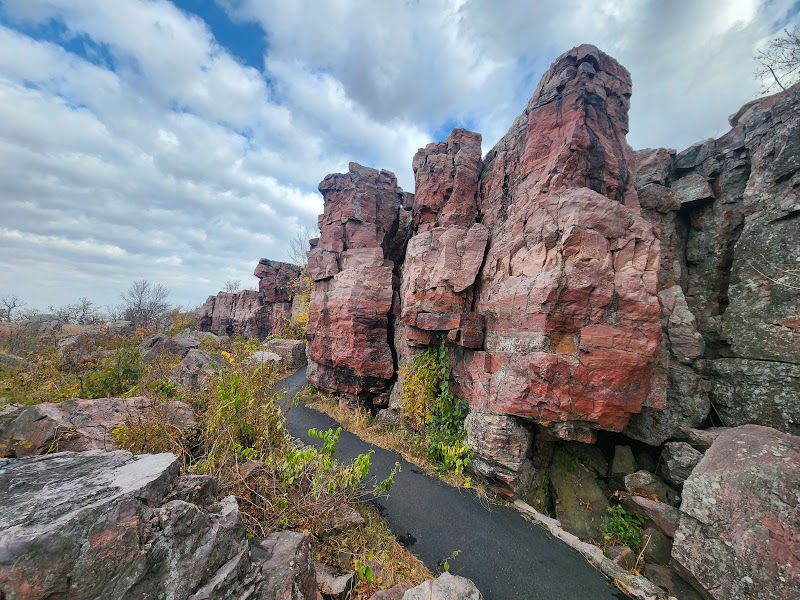
Hooked on Canby: A Practical Guide to Local Fishing Tournaments
Experience the thrill of Canby’s local fishing tournaments where nature’s shifting currents meet friendly competition. Discover the practical details for joining these lively events, set against Minnesota’s scenic lakes and engaged community.
Register Ahead
Sign up through local bait shops or the community center at least a few days before the tournament to secure your spot.
Wear Layered Clothing
Temperatures can shift quickly near the lakes, so bring layers to stay comfortable through changing weather.
Hydrate Constantly
Keep a water bottle or hydration pack handy. The focus needed for fishing is sharper when well hydrated.
Use Grippy Footwear
Shorelines and docks get slippery—choose shoes with solid traction to avoid falls.
Hooked on Canby: A Practical Guide to Local Fishing Tournaments
In Canby, Minnesota, fishing tournaments are more than contests—they’re a meeting ground where locals and visitors engage the lakes’ lively currents and the quiet pulse of the outdoors. These events take place mainly on nearby lakes such as Lac Qui Parle and the Yellow Medicine River, where water seems to call out with a pull that is both steady and unpredictable.
Each tournament offers anglers a chance to measure skill against nature’s rhythms, facing off with a cast that can turn a morning into a story worth retelling. The terrains around these lakes are straightforward—mostly flat with accessible shorelines and occasional patches of reeds that sway like gatekeepers along the water's edge, testing a fisherman’s patience and precision.
Tournaments generally last a day and require participants to be prepared for changing Minnesota weather. Early summer events, from May through July, offer calm mornings and water that eases into afternoon breezes. Fall tournaments add their own challenge as temperatures drop, and the fish grow warier in colder waters.
Participation is straightforward: anglers register with local bait shops or community centers a few days in advance. Rules often specify catch and release, emphasizing respect for the waters and future competitions. Competitors rely on a mix of practical gear—rods rated for medium action, bright lines, and baits mimicking local forage fish.
The landscape itself participates in these tournaments. Lakes feed into currents that seem to challenge anglers to read their shifting moods—sometimes slick and glasslike, other times restless with wind-tossed waves. Trees along the banks lean toward the water, their branches dipping like fingers testing the air.
For those keen to join, the tournaments provide not just a test of skills but an immersion into community life where stories of the day’s big catch or the one that got away flow as easily as the nearby streams. Snacks and refreshments, local vendors selling tackle, and the occasional live music all add practical comfort to the excitement.
Getting ready for a tournament means more than bait and tackle. Check the weather forecast and bring layered clothing—the river winds can turn cool unexpectedly. A hydration pack is essential for staying alert and comfortable. Shoes with good grip will help on slippery dock surfaces or muddy banks. And finally, carry a camera or smartphone to capture moments where the water catches light or an eager fish leaps—a reminder of the day’s challenge met and respected.
Whether novice or seasoned angler, Canby’s fishing tournaments offer a blend of challenge, camaraderie, and connection to the fiercely alive waters. They don’t ask for mastery alone but reward respect for the sport and the environment, inviting all who cast a line to engage with this place—and themselves—in a meaningful way.
Nearby Trips
All Adventures
Boat Charters
Water Activities
Adventures near Canby, Minnesota
Discover the unique and memorable adventures that make Canby, Minnesota special.
Frequently Asked Questions
Where exactly do Canby fishing tournaments take place?
Most tournaments are held on Lac Qui Parle, a large reservoir west of Canby, and along the Yellow Medicine River. These waters provide ample shoreline and access points to set up gear comfortably.
Are beginners welcome in these tournaments?
Absolutely. The events are community-driven and encourage anglers of all skill levels to join. Rules and regulations are straightforward, making the competitions accessible.
What fish species are typically targeted during the tournaments?
Anglers mainly target walleye, northern pike, and panfish like crappies and bluegills—species common to area lakes and rivers.
Can spectators watch the tournaments easily?
Yes, many of the shorelines and local parks where tournaments occur are open to the public, providing good vantage points to cheer on participants.
Is catch and release mandatory?
It varies by tournament, but many enforce catch and release policies to maintain fish populations and support sustainable fishing practices.
Are there any local fishing regulations I should know before participating?
Yes, anglers should familiarize themselves with Minnesota's fishing regulations, including size and bag limits specific to the lakes involved in the tournament, to ensure compliance.
Recommended Gear
Medium Action Fishing Rod
Versatile rod suitable for the species commonly targeted in Canby’s tournaments.
Layered Clothing
Adjustable layers keep you comfortable as weather shifts during long hours outdoors.
Hydration Pack or Water Bottle
Staying hydrated maintains focus and stamina throughout the tournament.
Non-slip Footwear
Essential for safety on docks, riverbanks, and occasionally muddy terrain.
Local Insights
Hidden Gems
- "Quiet fishing spots along the Yellow Medicine River where osprey nests can be seen nearby."
- "A small lagoon behind Lac Qui Parle Dam that attracts early morning waterfowl."
Wildlife
- "Look for bald eagles, great blue herons, and muskrats along the waterways."
- "In spring and fall, migratory shorebirds briefly claim the wetlands."
History
"The lakes and rivers around Canby have long been central to the region’s agricultural communities, with fishing as a traditional pastime that predates modern tournaments. The local tribes historically relied on these waters for sustenance."
